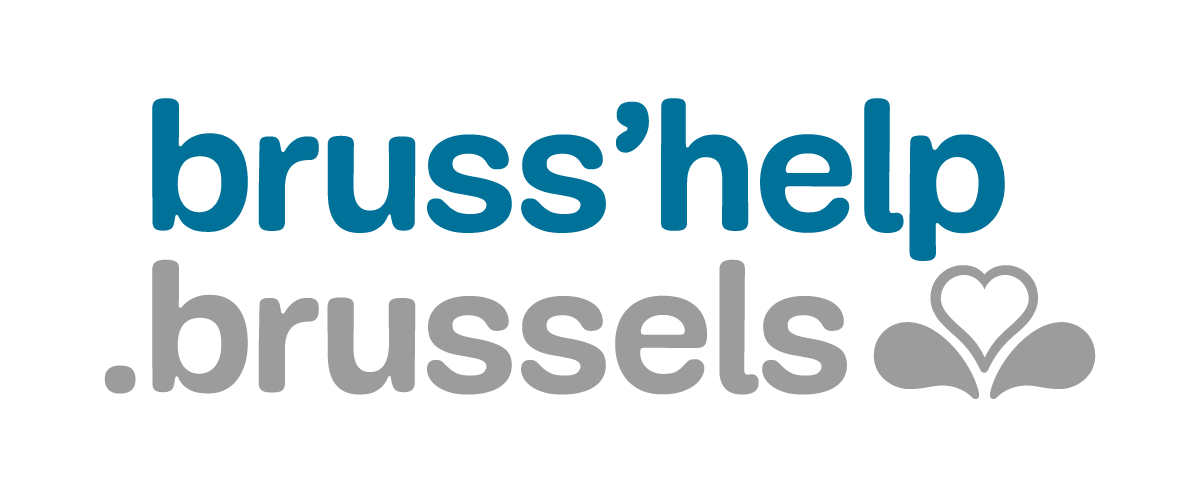Finding sustainable solutions
1/ Housing
Nowadays, we consider homelessness is related in its core to housing loss or poor housing conditions: increasing rents in private real estate, lack of social housing are tips of the iceberg causing precarity.
Making up for the right to housing is nowadays a priority to lift people out of the street in the long term; not only to (re)activate social protection but also to create a safe environment to reduce risks of chronic homelessness.
In a context of housing crisis and as far as possible, it is either about rehousing people or creating new housing solutions. That is why, homelessness service providers need to develop partnerships with public and private housing stakeholders in view of increasing and consolidating chances to provide housing to vulnerable people.
Stabilization and safeguarding housing

RIGHTS FIRST : L'Ilot
The Rights First’partners worked with public social real estate agenciesy or Housing First programs to provide housing to homeless people. Belgian regulation states that social real estate agenciesy have to grant a pourcentage of their housing to homeless people, an increasing is foreseen from 3% in 2025 up to 6% in 2027. Housing First has been developed for the most vulnerable homeless people or families. Furthermore, coaching towards housing starts when people are still living in the street or in emergency or temporary shelters in view of processing the challenges of finding housing and stabilization. The social workers will join the outreach team on the field to connect with people. Coaching also aims at safeguarding housing, meaning it takes places as long as the lease lasts and ensures that the tenant builds up autonomy to prevent relapsing into homelessness. Collaborations with public social welfare centres and municipalities facilitate (re)activation of social rights as much as homeless service providers specialized in housing safeguarding can help those public authorities in providing more intensive care to tenants.
The challenge remains the access to housing for the homeless people that are undocumented. However, registering the address of temporary housing could be a solution. See next box.
Temporary Housing

RIGHTS FIRST : Samusocial
To help homeless people recover their rights, 2 temporary housing units (New Samusocial’s Casa project) allow people to officially register to the municipality and public social welfare centre. This type of housing solution disregards people status and actually is an efficient path for undocumented people or persons with a precarious status to improve their administrative situation and residential rights with the help of social workers. The only requirement is that their situation has potential to be resolvable. Those projects are currently run for single women with or without children.
The tenants benefit from a 3-month renewable agreement providing them with a maximum of 12 months of support. They reside free of charge in individual rooms, sharing facilities such as bathrooms, kitchens, and common areas in one of the houses, while in the other, they have their own bathroom. Within this community approach, they are given a space for respite and psychological reconstruction, fostering self-esteem through a warm atmosphere.
During their stay, women are coached by partners from Rights First in their job and housing searches, as well as in learning digital literacy and independent living skills. This project has proven to be a success:
- Temporary accommodation helps to overcome obstacles and advance administrative procedures that were previously hindered due to lack of domiciliation (access to income, employment, etc.).
- Partnerships established in the context of these procedures, such as job and sustainable housing searches, show tangible results.
Access to housing

SKYLIGHT : CRISIS
Crisis does not own its own accommodation and needs to develop pathways into suitable temporary and permanent housing for members through our Housing Procurement and Landlord Liaison Teams. Those teams work directly with private and social landlords to increase access to suitable housing for Crisis members and the likelihood that members sustain their tenancies.
The offer to landlords and housing providers includes a designated point of contact at Crisis throughout the tenancy, property assessments, property matching with a pool of tenants, direct rent payments, mediation and tenancy breakdown prevention, and free optional rental insurance. This serves to provide landlords with the security they need in order to let their properties to Crisis members with peace of mind.
The benefits for Crisis of maintaining relationships through regular contact with landlords/housing providers include:
- Sourcing new properties
- Hearing about new properties in the pipeline
- Learning about prospective problems with a tenancy early, at which point they can intervene and potentially prevent deterioration of the situation, and evictions
The main benefit for landlords/housing providers is the ability to fill new properties quickly. Services support landlords/housing providers who have housed a Crisis member by being a point of contact in the months following a tenancy start. This enables information flow both ways regarding potential issues with the tenancy. Should these occur, services can intervene by:
- Passing on tenancy issues to the member’s Lead Worker (if the case is still open)
- Playing a mediator role between landlord and tenant
- Supporting Crisis staff to reopen the case and reactivate support to the member if required
- Supporting a move-on by the tenant (into more appropriate accommodation), if required.
Services will support people for a period of time after they have moved into properties to ensure they are set up to be as sustainable as possible. This may include:
- Financial incentives such as rent in advance and deposit or bonds
- Using Skylight member budgets to purchase move-in items such as furniture or white goods or move in packs.
- Supporting new tenants to set up direct debits and ensuring they understand how all practical elements such as how rent and utilities work and are paid for
- Ensure new tenants know where all their local community facilities are.
- Doing wellbeing check-in calls with tenants in the months after move-in to ensure all is going well
- Being a point of contact for current tenants to raise concerns if they are not comfortable talking to the landlord directly (after case closure).
Housing contract with a Foundation

INSULA : Sant Joan De Déu
Insula provides housing solutions to families or individuals that cannot afford private renting. Inspired by the housing first principles, at the Insula project, housing and support are separated. This means housing support is to help people maintain a tenancy and also to offer support to any other needs identified. Families or individuals participating in the project will not lose their housing if they disengage or no longer require support. The choices they make about their support do not affect their housing.
The fact that the Mambré Foundation guarantees continuity in housing, offering tenancy contract and supplies in their name facilitates social work and allows the individuals and families make a process of recovery guaranteeing the right to the home before and after its passage through Insula. Tenancy contracts allow municipal registration that is the way to access other rights like social benefit, health care or education.
- Access to housing (individuals sharing home or individual family units), formalized with a rental contract, annual and renewable, between the Mambré Foundation and the person/family.
- Homes are delivered furnished and with basic equipment.
- Co-payment: Contribution of a maximum of 30% of economic income in terms of payment of rent and supplies. The difference between this 30% and the actual price of the rent and supplies is provided as a non-returnable grant managed by Sant Joan de Déu Serveis Socials.
- Temporary stay in housing and social support, adapted to the process of each person, without being a finalist resource.
2/ Employment
Besides housing, employment is perhaps the most effective way to secure stabilization when homeless people are still able to work. Psychologically speaking, it would help them find some new purposes in life.
However, reintegrating the labor market is very challenging in many ways: the demands of competences, digitalization cleavage, language blockage, etc. Homeless people are heavily excluded from the labor market. Partnerships are relevant to support people in enhancing their competences or gain experience to get a job.
Partnerships with private stakeholders

RIGHTS FIRST : HOBO
Partnering with private employers goes twofolds:
1) Raising awareness on the employability of vulnerable people in a situation of homelessness
2) Building partnerships with private employers
The partnerships aims at facilitating access to available jobs for vulnerable people. Through the usual process of applying for jobs, weaker and less attractive working profiles have almost no chance of being contacted and employed. Their curriculum is not attractive enough and gets automatically filtered away. Through the partnerships, the weaker candidates are first screened by the work coaches of Rights First. After this screening, the candidates whose situation is more stabilized are put in direct contact with the employer. This shortcut in the application process of the partnership has already proven its benefits.
Once a candidate’s application leads to an employment contract, the partnership includes long-term support for the candidate in the first period of his contract. This practical support provides the necessary help for administrative questions and operates as a real prevention work in the different life domains.
An active partnerships between social organizations and private employers facilitates crossing the gap towards work and perpetuating employment by a serious follow-up.
Partnership with public authorities

RIGHTS FIRST : CPAS Brussels City + HOBO
With their own employment and housing programs, the public social welfare centers in Brussels offer a real interest for the improvement of the situation of homeless people. A partnership with the PCSW of 1000 Brussels aims at offering both solutions (housing and work) to a selected number of candidates. Homeless people with a real reintegration potential are offered a working contract through the PCSW’s employment service: the “article 60”. At the same time, a long-term housing solution is proposed to the candidate. This innovative double solution allows a real transformation for the person. With substantial guidance and support, these challenging solutions enable radical change in a homeless person’s situation in a short amount of time.
Employment Support

SKYLIGHT : CRISIS
It is essential, as with all aspects of our services, that employment support contributes directly to homelessness ending for good, rather than being a standalone offer.
Individuals accessing our service often feel positive about their employment prospects and the future when our teams talk to them about their personal situation and about their personalised plan, which will support with their employment and ability to move out of homelessness. Our programme will work in partnership with others, to improve members opportunities in the job market and is developed with the member to meet their particular needs. The personally tailored support combined with having an allocated lead worker means members feel engaged in their plan to secure employment and move away from homelessness.
Employment Brokerage (London)
Employment brokerage is part of supporting members into independence and away from homelessness. The aim of the Employment Brokerage service is to secure employment opportunities for members across all Client Services in London and, where tenable, more nationally. The service works with those employers that are engaging with the service to ensure they provide supportive environments where a member is given every chance to succeed, whilst ensuring their employment practices are not compromised.
The Employment Brokerage team sources employment opportunities for members who are close to being work ready and who are keen to develop their skills and experience. The team matches a member's skills, desires and experience to vacancies within partner organisations, helping them to secure sustainable employment. Tailored training packages can be created for specific employment opportunities within industries such as construction, hospitality, facilities, and customer service.
Department of Work & Pensions- Employers’ Covenant
The DWP’s National Employer and Partnership Team (NEPT) manage accounts for over 250 national employers and partners. Crisis is a partner of the DWP and over recent years we have worked closely with the NEPT, including developing a homelessness toolkit for Job Centre Plus staff.
From July 2023 Crisis will be hosting a Homelessness Covenant on behalf of the DWP. This will provide an online framework within which employers and partners can enquire, sign up, and be supported in their pledge to end homelessness. For example, employer pledges could be :
- Provide employment and training opportunities for people at risk of or experiencing homelessness
- Adopt fairer recruitment and employment policies and practices to support people affected by homelessness.
- Help end homelessness in local communities through fundraising, raising awareness, partnerships, and volunteering.
Access to employment easier when housed

INSULA : Sant Joan De Déu
At Insula, Formació I Treball provides individual support to people who have access to housing so that they can improve their employability and facilitate their access to the labor market.
The insertion itineraries developed within the framework of the INSULA project seek to achieve the best insertion rates through coordination between job inserter and direct care professionals - social workers and social integrators -, with the aim of always finding the best fit between the work itinerary and the extremely changing situation of the accompanied people. Among the different approaches, the itineraries contemplate hiring in the Formació i Treball Group's insertion companies (shelter and employment) whenever the need for an intermediate step is detected before joining the ordinary market. At the same time, all people carry out training in transversal and basic skills, technical-professional and non-work practices.
Support for a personalized employment insertion itinerary with Formació I Treball Fundació.
All information disclosed reflects the opinion of the author only. The European Commission is not responsible for any use that may be made of the information.
![]()







